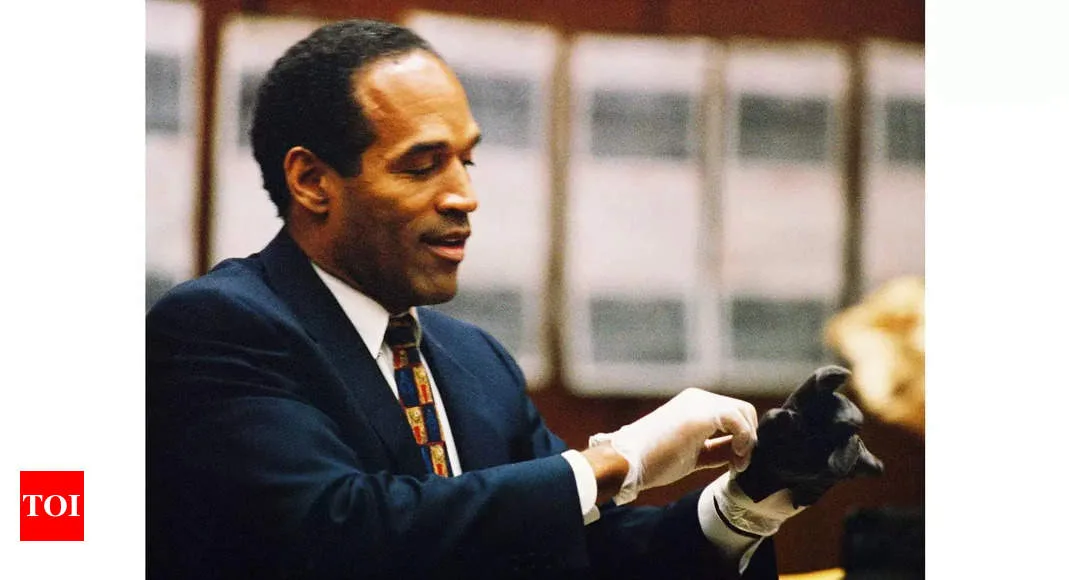
O.J. Simpson, whose full name is Orenthal James Simpson, is a former American football player, broadcaster, and actor who became a controversial figure in the United States due to his involvement in a high-profile criminal trial.
Simpson became the subject of widespread media attention and controversy in 1994 when he was arrested and charged with the murders of his ex-wife, Nicole Brown Simpson, and her friend, Ronald Goldman. The trial, which took place in 1995, was one of the most publicized and watched trials in American history. The trial became a media circus and a major cultural moment in the United States and was labeled as ‘trial of the century‘. It was marked by issues of race, celebrity, and the use of DNA evidence.
Simpson’s legal defense team famously argued that evidence had been mishandled and that there was racial bias in the investigation.
In a highly controversial verdict, O.J. Simpson was acquitted of all charges in the criminal trial on October 3, 1995. The “not guilty” verdict shocked many and led to intense debate and discussion about the American criminal justice system, race, and celebrity.
Here are 15 astonishing facts about the trial:
- Lengthy Trial: The trial lasted for approximately nine months, making it one of the longest criminal trials in U.S. history.
- Televised Trial: The entire trial was televised, and it became a daily spectacle, with millions of viewers tuning in to watch the proceedings.
- Dream Team Defense: O.J. Simpson’s defense team, often referred to as the “Dream Team,” included prominent attorneys such as Johnnie Cochran,
Robert Shapiro , F. Lee Bailey, and Alan Dershowitz. - The White Bronco Chase: On June 17, 1994, O.J. Simpson led police on a slow-speed chase in a white
Ford Bronco on Los Angeles freeways, with millions of people watching it live on television. Mark Fuhrman Controversy: LAPD Detective Mark Fuhrman’s use of racial slurs and alleged planting of evidence became central issues in the trial and damaged the prosecution’s credibility.- The Glove: The famous moment when O.J. Simpson tried on a bloody glove found at the crime scene, which seemed too small for his hand, led to Johnnie Cochran’s memorable quote: “If it doesn’t fit, you must acquit.”
- Celebrity Testimonies: Several celebrities, including Kato Kaelin and Faye Resnick, were called as witnesses during the trial.
- Jury Sequestration: The jury was sequestered for the entire trial, which means they were isolated from the outside world and closely monitored.
- Media Frenzy: The trial had a 24-hour news cycle and spawned numerous books, documentaries, and even a television series.
- The DNA Evidence: The trial featured extensive discussions about DNA evidence, which was a relatively new field at the time.
- Dual Verdicts: O.J. Simpson was acquitted of murder charges in the criminal trial, but he was found liable for the deaths of Nicole Brown Simpson and Ronald Goldman in a subsequent civil lawsuit.
- Dismissed Juror: One of the jurors, Francine Florio-Bunten, was dismissed from the trial due to her failure to disclose a domestic violence incident in her past.
- Media Impact: The trial’s media saturation was so intense that it led to a phenomenon known as the “O.J. Effect,” where other news stories received less attention during the trial.
- Juror Controversies: Some jurors faced controversies, including allegations of misconduct, and some later spoke out about their experiences during and after the trial.
- High Cost: The estimated cost of the O.J. Simpson trial, including both the criminal and civil proceedings, was in the tens of millions of dollars.
Despite his acquittal in the criminal trial, Simpson was later found liable for the deaths of Nicole Brown Simpson and Ronald Goldman in a civil lawsuit brought by their families. He was ordered to pay substantial damages to their families.
After his legal troubles, O.J. Simpson largely retreated from the public eye. He was involved in other legal issues, including a 2008 conviction for armed robbery and kidnapping in Las Vegas. He served nine years in prison before being granted parole in 2017 and was released.
The O.J. Simpson trial remains a remarkable and polarizing chapter in American legal history, with its impact on the criminal justice system, race relations, and celebrity culture still discussed and debated to this day.

